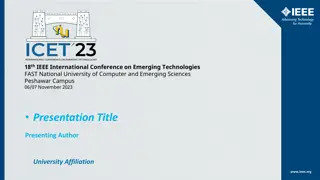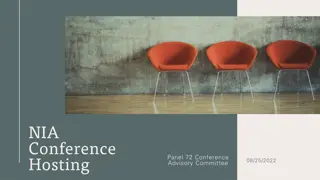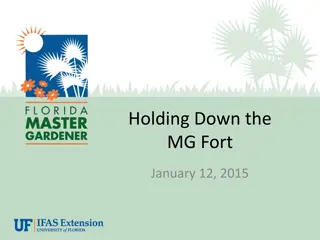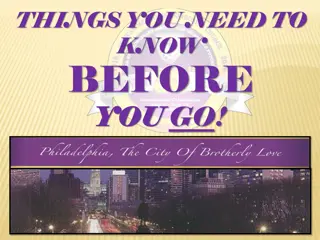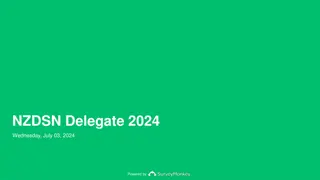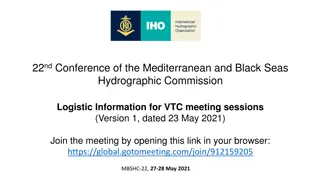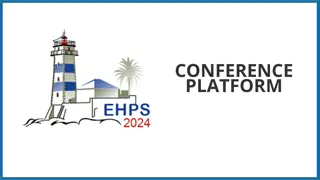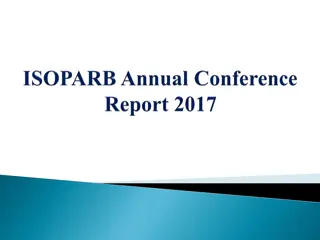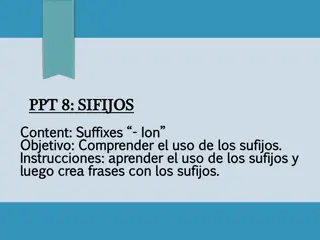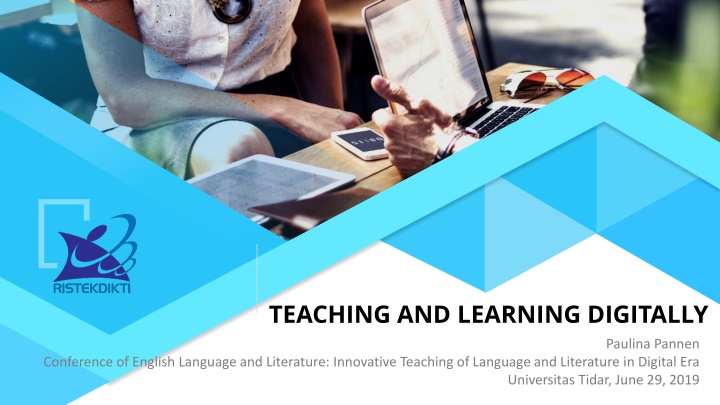
Innovative Teaching and Learning in the Digital Era
Explore the evolution of educational technology, learning theories, and i-Pedagogy strategies for effective digital learning. Discover how the digital era is reshaping education to bridge the generation gap and enhance student-lecturer dynamics.
Download Presentation

Please find below an Image/Link to download the presentation.
The content on the website is provided AS IS for your information and personal use only. It may not be sold, licensed, or shared on other websites without obtaining consent from the author. If you encounter any issues during the download, it is possible that the publisher has removed the file from their server.
You are allowed to download the files provided on this website for personal or commercial use, subject to the condition that they are used lawfully. All files are the property of their respective owners.
The content on the website is provided AS IS for your information and personal use only. It may not be sold, licensed, or shared on other websites without obtaining consent from the author.
E N D
Presentation Transcript
TEACHING AND LEARNING DIGITALLY Paulina Pannen Conference of English Language and Literature: Innovative Teaching of Language and Literature in Digital Era Universitas Tidar, June 29, 2019
The World in 2050 https://www.youtube.com/watch?v=qNq2TLuQZSQ
New Culture New Culture Industrial revolution 4.0: Technology disruption https://youtu.be/ystdF6jN7hc Human Machine communication Internet of Things 3D Printer Connection: global village Smart Robot Driverless car Big Data Online/virtual education
Digital Learning Transofrmation
Educational Technology Evolution Smart Phones (2003 - ) & Tablets Social Networks and Web 2.0 (2000s) Programmed Instruction (1960s) Systematic Instructional Design (1970s) Film Television (1950s) Computers (1980s) The Internet (1990s) (1940s) (2010 - ) Social software + free and open content (OER) Massive Open Online Course 5 Source: Abas (2014)
Learning Theory Group growth Individual growth Social software + free and open content (OER) Massive Open Online Course Behaviorism Cognitivism Constructivism 6 Social Learning/connectivism Adapted from Abas (2014) & Rick Schwier (2008)
i-Pedagogy Wheel Put the technology into learning Bates (2005): a useful approach is to identify the kinds of learning that different media facilitate best, and under what conditions to achieve learning goals http://www.coetail.com/vzimmer/files/2013/02/iPadagogy-Wheel.001.jpg
GENERATION GAP Students vs vs Lecturers
Learning : a persisting change in human performance as a result of the learner s experience and interaction with the world. Pedagogy is leading people to a place where they can learn for themselves. It is about creating environments and situations where people can draw out from within themselves, and hone the abilities they already have, to create their own knowledge, interpret the world in their own unique ways, and ultimately realize their full potential as human beings LEARNING & Pedagogy Jenuszewski & Molenda, 2008
New New Learning Process Play Learn Play Learn Job Job Retire
Learning is Multirepresented HOW LEARNING TAKES PLACE? Learning is Augmented Learning is Personal Learning is Social LEARNING IS MOBILE Learning is Open
New Learning Process Other students Trainers & experts E-books, e-journals Facilities System & the net Lab/ workshop student Learning resources E- assessment Learning resources Learning experience Learning outcomes
New Learning Process (DELIVERY SYSTEM) Online Online- - learning learning Blended Blended- - learning learning Flipped Flipped- - classroom classroom All materials are available digitally in the form of individual learning objects or e- learning packages, while class time is for discussion, problem solving activities, peer-review and argumentation
Flipped Learning http://www.washington.edu/teaching/teaching-resources/flipping-the-classroom/
Robot Teachers v Robot Teachers https://youtu.be/O1qT VtFUxjw
E-Learning (SPADA) (https://spada.ristekdikti.go.id)
Community of Practice (life long learning) Experiential learning, social constructivism, connectivism To be shared: A domain A community And practices Definition: Communities of practice are groups of people who share a concern or a passion for something they do and learn how to do it better as they interact regularly in physical as well as virtual environment
Pedagogy first, technology next . Given all the gadgets (or books) there is no guarantee that learning will happen Reeves (2014): Technology does not influence learning directly. Technologies are vehicles for instructional methods, and environment that account for learning Tehnology might be the answer, but what is the question?
new skills for new learning Integration into the curriculum without additional course or credit hours. Internet of Things Artificial Intelligence Co-extra curricular E-commerce Big Data Augmented Reality Robotics Critical thinking Critical thinking Entrepreneurship Entrepreneurship Cognitive Skills General Education Additive Manufacturin g 3D Printing Cloud Computing Nanotech & Biotech Lifelong Learning Genetic Editing New Literacies Data Literacy Technology Literacy Human Literacy Coding
New Approach in Learning
NMC Horizon Report HE 2019
NMC Horizon Report HE 2019 (Robotics)
Robot Teachers for EFL Robot Teachers https://youtu.be/O1qTVtFUxjw v
ELT and Technology 1. Instructional Media ICT based (classroom set) when designed properly and used creatively have been proven to increase effectiveness in English language learning 2. Gamification, VR, AI will be presence in EFL classroom, will promote independent and personalized learning, while still support team learning 3. The use of internet (google and internet content) will be growing rapidly majority is written in English 4. Online learning (e-learning, simulation, moocs, etc.) will be (and already is) our daily bread. 5. Robot will be growingly presence. robots are better than humans at teaching The best ? a combination of the best of what learning can be designed with the best of what instructional media can offer. a combination of the best of what student can make use and learn from the best instructional media can offer



